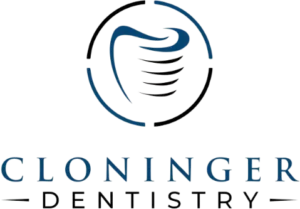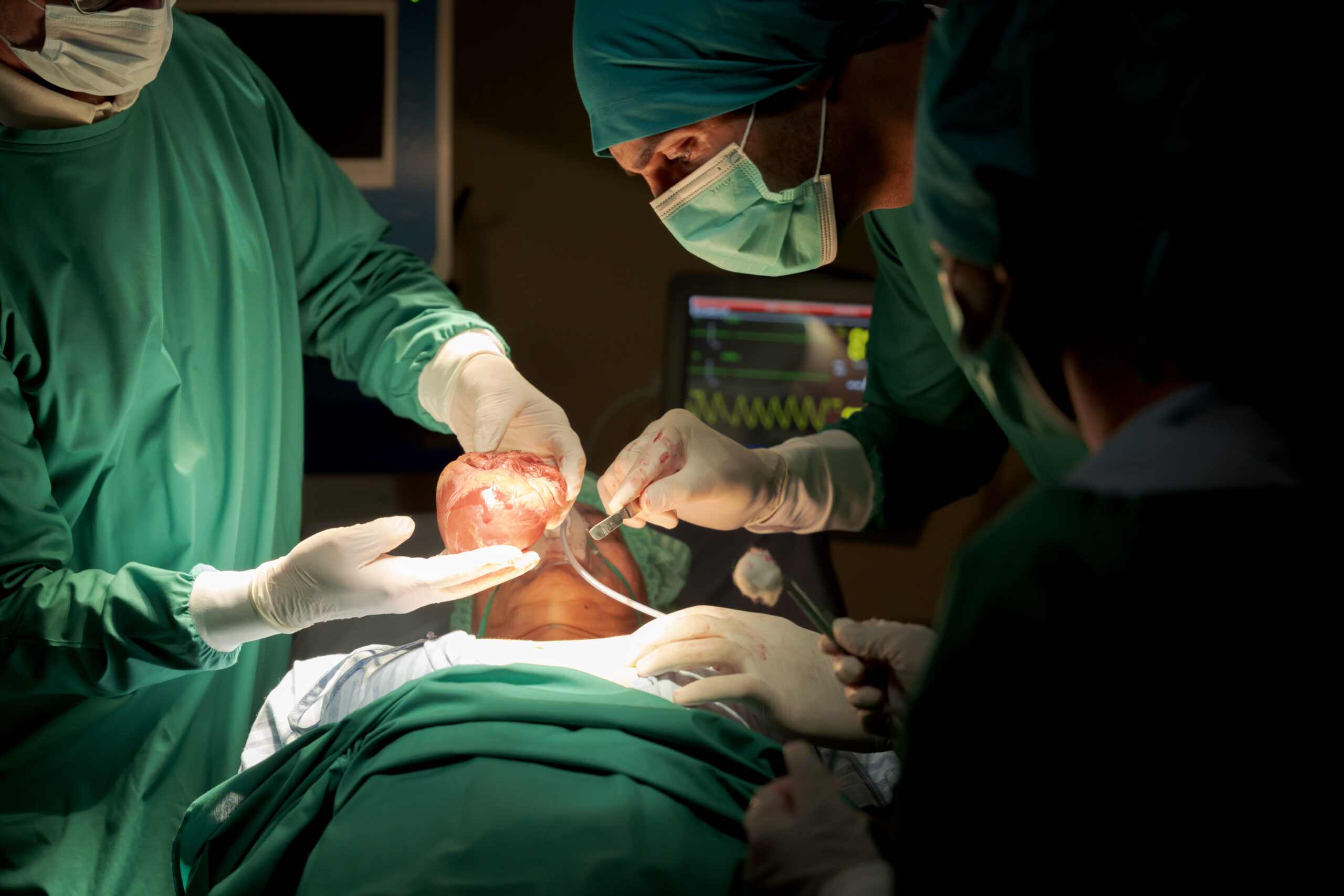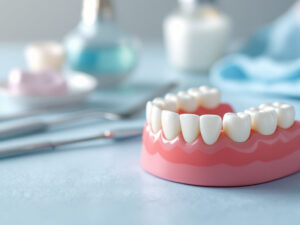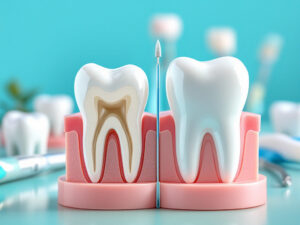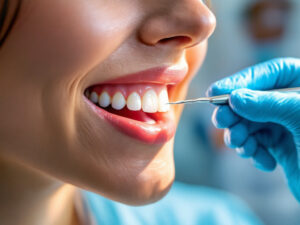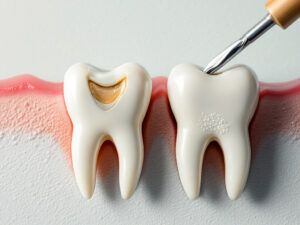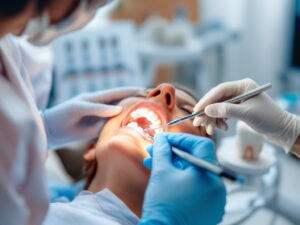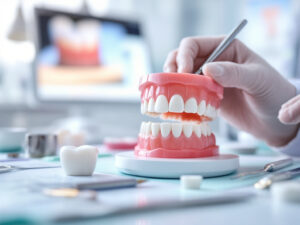Recognize why surgical extraction matters
When you first hear the term “surgical tooth extraction,” you might feel a sense of anxiety or concern. This procedure is not only one of the most common surgeries in the United States (Colgate) but also a critical element of advanced dental care. By removing teeth that simple methods cannot handle (such as impacted or severely damaged teeth), a surgical procedure paves the way for healthier gums, better alignment, and a more confident smile.
Maintaining a healthy mouth often means being prepared for every scenario. You might need a surgical extraction if you have an impacted wisdom tooth, a tooth that broke off below the gumline, or a severe infection that threatens surrounding teeth. Addressing these issues promptly reduces the risk of further complications, such as bone loss, misalignment, or persistent pain. Whether you have been dealing with chronic discomfort or a more recent concern, understanding why surgical removal is crucial will help you feel empowered to make the right decisions for your oral health.
Understand the difference between extractions
To appreciate when a surgical approach is necessary, it helps to compare it to a basic or “simple” technique. A simple extraction removes a tooth that is visible above the gumline and can be loosened and taken out with forceps, requiring only local anesthesia. A surgical procedure, on the other hand, involves more complex steps:
- Making an incision in your gum to uncover the tooth.
- Removing small amounts of bone if the tooth is embedded.
- Cutting a tooth into pieces to aid extraction if necessary.
- Closing the area with stitches to promote healing.
While a simple extraction might take only a few minutes, surgical removal can require more time and specialization. It is also more likely to call for sedation or general anesthesia if the tooth is impacted or if you are especially anxious (Thomas Dentistry). By visiting a trusted practice such as Cloninger Dentistry, you gain access to professionals skilled in both simple and surgical extractions, ensuring your procedure matches your specific clinical needs.
Avoid complications with timely care
Waiting too long to remove a problematic tooth can lead to complications that go beyond permanent pain. Infections can spread to nearby teeth, inflammation in the jaw may worsen, and bite alignment issues can develop over time (News-Medical). Surgical extraction becomes essential in more advanced situations, preventing further damage and promoting a healthier mouth in the long term.
At Cloninger Dentistry, we focus on proactive treatment to minimize the risk of severe deterioration or infection. Our goal is to tackle your dental challenges early, whether through simple tooth extraction if the tooth is accessible or a surgical procedure if the situation calls for it. Taking action sooner rather than later means a smoother recovery and a happier, healthier you.
Choose Cloninger Dentistry with confidence
Taking care of your oral health goes well beyond a standard cleaning or cavity filling. From addressing advanced problems through surgical tooth extraction to maintaining the finer details of your smile, you deserve a dental team that understands your anxieties, accommodates your needs, and employs the latest methods. Cloninger Dentistry blends a supportive environment with a comprehensive approach, aiming to reduce worry and maximize results.
Experience a supportive environment
Dental procedures can feel intimidating. Recognizing this, our team offers reassurance and empathy at every stage of your treatment. We know that each situation is unique, and so we prioritize:
- Warm and personable communication before, during, and after your procedure.
- Personalized consultation sessions that openly discuss your fears, needs, and treatment preferences.
- Encouragement and emotional support to help you see a path toward better health rather than focusing on the challenges of your extraction.
We believe it is crucial for you to feel understood and empowered, not rushed or overlooked. Our staff dedicates time to answering questions, reviewing X-rays, and ensuring you are comfortable with the recommendation for a surgical procedure.
Benefit from comprehensive services
Why should you or a loved one rely on Cloninger Dentistry for family dental care, preventative hygiene, and cosmetic dentistry? We offer several treatment pathways that fit seamlessly into any stage of life, ensuring that you can handle immediate concerns and maintain your oral health for years to come. Here is a glimpse of what complements our surgical expertise:
- Preventive care: Services like professional teeth cleaning, fluoride treatment, and oral cancer screening keep your mouth free of bacterial buildup and disease.
- Pediatric and family-focused programs: Pediatric dental care supports children’s oral health from an early age, setting them up for a lifetime of strong teeth and gums.
- Restorative procedures: From root canal therapy to dental crown placement or full denture fabrication, our restorative services return structure and function to your teeth.
- Emergency care: If you ever face a dental crisis, emergency dental care and emergency oral surgery ensure you have immediate access to professional help.
Because surgical tooth extraction is sometimes part of a bigger dental plan, it is helpful to have these other solutions at your disposal. If you need a filling replaced, your teeth whitened, or braces evaluated, we have the capabilities to meet all your needs in a single, trusted location. By focusing on functional restoration and aesthetic appeal, we guide you toward a confident smile that lasts.
Explore your anesthesia options
When it comes to having a tooth surgically extracted, comfort is understandably a top priority. Although local anesthesia is sufficient in many cases, advanced sedation and anesthesia options have become increasingly popular for surgical procedures, particularly for impacted wisdom teeth or cases of extensive decay. Understanding your anesthesia choices will help you face the procedure with greater confidence.
Local anesthesia vs sedation
For a simple extraction, local anesthesia is usually adequate. Its numbing effect minimizes or eliminates pain, allowing the procedure to be completed without significant discomfort. Yet surgical tooth extraction can present more complexity, demanding deeper sedation. Some of the most common options include:
- Local anesthesia plus nitrous oxide (laughing gas): Nitrous oxide can help you relax while local anesthesia targets pain. It wears off quickly once the mask is removed, making it convenient and widely used for mild to moderate anxiety (OMS Nashville).
- IV sedation: Often chosen by patients who prefer minimal awareness, IV sedation is a deeper form of anesthesia that delivers medication through a vein. You will remain conscious but will likely have little memory of the procedure after waking up. This method is well-suited for tricky extractions or patients dealing with higher levels of anxiety (Premier Dental Ohio).
- General anesthesia: This puts you into a completely unconscious state with no recollection of the procedure. It can be a good fit for extensive surgeries like multiple extractions or significant jaw work. Although quite safe, general anesthesia can have rare side effects, so we thoroughly evaluate your medical history to mitigate any risks (News-Medical).
Choosing the right anesthesia option depends on your personal comfort level, the complexity of the extraction, and your health profile. During your consultation at Cloninger Dentistry, we will discuss which approach best fits your situation, ensuring you understand the benefits and any potential risks.
Emphasis on your comfort
Nothing is more important to us than your well-being as you prepare for, undergo, and recover from a surgical procedure. Our team values:
- Thorough communication about anesthesia options.
- Detailed sedation protocols that align with your medical background.
- Safe recovery practices so you wake up feeling stable and well-supported.
If you ever feel unsure or uneasy about the recommended anesthesia, we will adjust. Cloninger Dentistry believes in a tailored plan, from sedation levels to the pace of the procedure, that reflects your comfort level and long-term health interests.
Prepare for a smooth recovery
While many patients feel relief immediately after an extraction, there is often a post-operative healing window that may include mild swelling or discomfort. A properly managed recovery phase will help you avoid complications like infection or dry socket. With the right techniques, you can go about your daily life sooner and enjoy renewed oral vitality.
Focus on aftercare
After the procedure, it is common to need stitches if your gum tissue was cut or bone was removed. As part of your discharge, we will provide you with instructions that might include:
- Taking prescribed pain medications or over-the-counter anti-inflammatories.
- Applying ice packs to reduce swelling.
- Limiting strenuous activities for the first 24 to 48 hours.
- Adhering to a softer diet. Warm soups, applesauce, and smoothies (avoid using a straw) are excellent options to protect your healing site from irritation.
- Rinsing gently with saline or an approved mouthwash to keep the area clean without disturbing stitches.
It is vital to rest, use proper wound care, and schedule follow-up visits if necessary. By devoting a few days to meticulous aftercare, you create an environment that fosters quicker healing, minimized discomfort, and improved oral health moving forward.
Ease your healing process
Surgical extractions are, by nature, more invasive than basic extractions, so your body will need an extra bit of attention to repair itself fully (Atrium Dental). Here are some tips to help smooth out any bumps in the road:
- Follow medication guidelines: Skipping doses or discontinuing drugs too soon may hinder your recovery or lead to an infection.
- Keep hydrated: Water is your best friend after dental procedures, but avoid using straws or creating suction in your mouth, which can dislodge a blood clot.
- Consider your posture: Sleep with your head slightly elevated. Lying flat can prolong bleeding and increase swelling.
- Stay vigilant for warning signs: Persistent pain, fever, or excessive bleeding are reasons to call our office promptly. Even minor issues can escalate, so be on the lookout for anything unusual.
Every extraction site and patient heals differently, so do not stress if a friend’s experience differs from yours. Our goal is to minimize complications and give you the support you need, whether that means prescribing extra rest or introducing an additional checkup. By following our guidelines and reaching out when uncertainties arise, you set the stage for a successful return to normal activities.
Learn how we support you
At Cloninger Dentistry, we understand you may have unique challenges that require a supportive environment and personalized care. Whether you are seeking relief from a painful impacted tooth or looking to safeguard the health of your entire family, we strive to offer a comprehensive approach with advanced techniques and a caring touch. There is empowerment in knowing that your provider sees you as a whole person, not just a patient.
Tailored approach for lasting results
Our recommendations always arise from careful examinations, digital imaging (including digital xray imaging and, where necessary, 3d imaging dental diagnostics), and thorough conversations about your needs. Because no two patients have identical teeth, medical histories, or levels of anxiety, your surgical tooth extraction plan will match your personal circumstances. This includes:
- Individualized sedation choices: We will discuss your previous experiences, comfort levels, and ensures that sedation aligns with your overall health.
- Timely scheduling: Safe extraction at the right moment might prevent more invasive treatments later on.
- Clarified outcomes: Knowing what to expect helps reduce stress and promotes a sense of optimism. From potential cosmetic restorations to ensuring bone health, we make sure you understand the bigger picture of your oral wellness.
For instance, if you have partially erupted wisdom teeth that are causing repeated infections, we might advise removing them before the situation grows more complicated. If you have multiple decayed teeth, using sedation can make the process less daunting, and our practice can combine necessary procedures, minimizing the total number of visits.
State-of-the-art technology
Your safety and comfort depend heavily on the quality of equipment and protocols used. We are constantly updating our practice with modern dental technology, from advanced imaging tools that reveal bone density and nerve positions to specialized equipment that allows for efficient, precise extractions. These upgrades translate into faster procedures, less trauma to surrounding areas, and smoother healing times.
Equally important, Cloninger Dentistry prioritizes ongoing professional development for our staff. Techniques in sedation, surgical extraction, and postoperative care evolve over time. By embracing evidence-based treatments and the latest research findings, we ensure that you receive care rooted in current best practices.
Comparing simple extraction vs surgical extraction
Below is a summary of key attributes distinguishing a simple approach from a more structured surgical procedure:
| Extraction Type | Key Traits | Recovery Time |
|---|---|---|
| Simple Extraction | – For a visible tooth above the gumline. – Usually requires only local anesthesia. – Less invasive. |
Typically a few days to a week for full recovery. |
| Surgical Extraction | – Performed on impacted or severely damaged teeth. – May involve incisions, bone removal, or sectioning the tooth. – Higher complexity and may require sedation. |
Generally 1-2 weeks or more, depending on complexity. |
This table gives you a roadmap as you consider your treatment options. If you are unsure which category your tooth falls under, or if you have specific concerns such as osteoporosis medication or a prior head and neck radiation history, we are here to guide you toward the safest and most effective solution.
No matter how complex your situation, we believe in cultivating the support and guidance necessary for lasting recovery. Surgical tooth extraction often acts as a stepping stone to further restorative measures, such as a dental bridge placement or porcelain crown service. And as you explore these solutions, you will find our practice ready to address every dimension of your dental well-being, from routine preventive visits to targeted restorative care.
Frequently asked questions
Below are some common concerns we hear from patients. If you have specific questions about your own situation, our team at Cloninger Dentistry is always happy to provide more personalized guidance.
-
How do I know if I need a surgical extraction or a simple one?
Typically, a simple extraction is enough if your tooth is fully visible above the gumline and can be pulled without any incisions. If your tooth is impacted, partially below the gumline, or has broken off in a way that makes it difficult to grasp, a surgical method is necessary. Our dentists rely on digital imaging and an in-depth exam to determine which approach is best for you. -
Is anesthesia always required for a surgical tooth extraction?
Yes. You will always have some form of anesthesia or sedation to prevent pain and keep you comfortable. While local anesthesia might be enough for less complicated procedures, deeper sedation or even general anesthesia can be recommended for more complex surgeries, multiple extractions, or high patient anxiety. -
How long does recovery typically take?
Healing time varies depending on the complexity of the procedure and your personal health. Most people need around 1 to 2 weeks to return to normal activities. By following aftercare instructions and good oral hygiene, you can typically expect faster healing, minimal pain, and a low risk of complications. -
What if I am nervous or anxious about the procedure?
Dental anxiety is normal. We understand that any oral surgery can be daunting, so we provide different sedation options and a compassionate environment to help you feel safe and relaxed. Our team communicates with you about every step of the process, addresses your concerns, and tailors the experience to your comfort level. -
How much does a surgical extraction cost, and does insurance cover it?
Costs vary based on the tooth needing extraction, the type of anesthesia used, and any individual risk factors. Many insurance plans cover these procedures, at least partially. Our administrative team will work closely with you and your insurance company to confirm coverage and provide treatment estimates. If additional financial assistance is needed, such as flexible financing dental, we are happy to discuss suitable options for your budget.
By trusting Cloninger Dentistry for your surgical tooth extraction needs, you ensure access to an empathetic team, advanced technology, and a holistic approach to oral health. Whether you are currently experiencing tooth-related pain or simply looking to safeguard your smile for the future, we invite you to explore our full range of services, from tooth extraction service and routine dental checkup to custom denture fitting and more. Together, we can set you on the path to lasting comfort, functionality, and confidence in your dental health.
